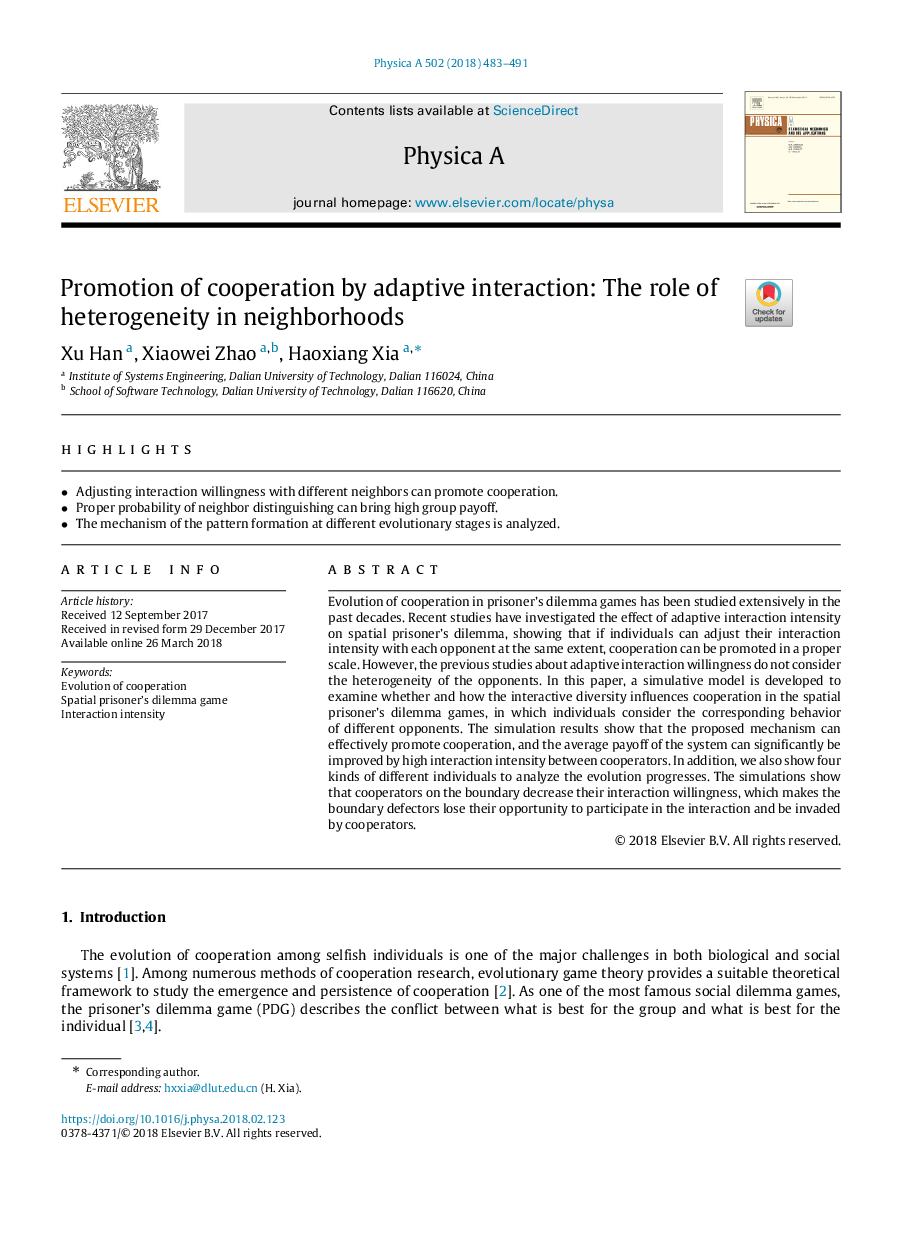| Article ID | Journal | Published Year | Pages | File Type |
|---|---|---|---|---|
| 7375342 | Physica A: Statistical Mechanics and its Applications | 2018 | 9 Pages |
Abstract
Evolution of cooperation in prisoner's dilemma games has been studied extensively in the past decades. Recent studies have investigated the effect of adaptive interaction intensity on spatial prisoner's dilemma, showing that if individuals can adjust their interaction intensity with each opponent at the same extent, cooperation can be promoted in a proper scale. However, the previous studies about adaptive interaction willingness do not consider the heterogeneity of the opponents. In this paper, a simulative model is developed to examine whether and how the interactive diversity influences cooperation in the spatial prisoner's dilemma games, in which individuals consider the corresponding behavior of different opponents. The simulation results show that the proposed mechanism can effectively promote cooperation, and the average payoff of the system can significantly be improved by high interaction intensity between cooperators. In addition, we also show four kinds of different individuals to analyze the evolution progresses. The simulations show that cooperators on the boundary decrease their interaction willingness, which makes the boundary defectors lose their opportunity to participate in the interaction and be invaded by cooperators.
Keywords
Related Topics
Physical Sciences and Engineering
Mathematics
Mathematical Physics
Authors
Xu Han, Xiaowei Zhao, Haoxiang Xia,
